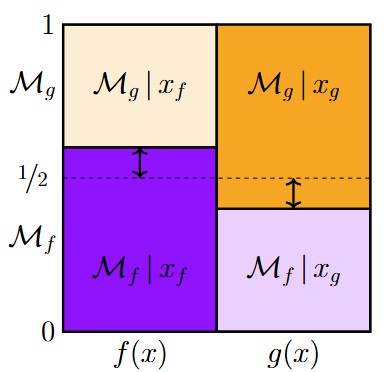Disclaimer: advice based purely on the life and lab of the author. May not generalize to other people and other contexts. No literature whatsoever was consulted. Take advice at your own risk.
For most of my life I have had the idea that the key to happiness is control, or at least the illusion of control. What person would delight in having to follow orders and obeying the wishes of some random overlord? This is one of the perks of academia (at least in my Dutch bubble): the complete and utter freedom to do what you want, when you want, and where you want. Of course there can be lack of control in academia as well, even in the Dutch bubble. Once I felt a burn-out looming, and it was when I imagined myself standing at the bottom of a tall mountain, with an avalanche of work hurdling its way toward me, intent on crushing and suffocating — in other words, I experienced a profound lack of control.
Recently, however, I’ve had somewhat of an epiphany, and it now seems to me that this rule of “more control = more happiness” was very much context-specific. In hindsight, this now seems obvious. Suppose that, with relatively little training, one has to assist a surgeon, work in a power plant, or even do minor construction work in one’s house. In such situations, most people (myself included) would be tremendously relieved in getting clear orders to follow. So the general rule that a lack of control always lowers happiness cannot be true (at least for me).
Anyway, on to the point of this post. The lab that I am heading has quite a few PhD students, postdocs, and programmers. Even though all of them are wonderful, some supervision remains inevitable and desirable: projects need to be planned, thesis work needs to be discussed, and papers need to be commented on. In the past, I have found it difficult to meet the obligations towards my students, and some would legitimately complain that I was bad at sticking to appointments. Moving house and having a young family did not improve the situation, and the meeting schedule progressively changed from a firm commitment to a dubious promise.
In other words, students and postdocs were unhappy because I was difficult to track down, and some project or other always seemed to intervene with their scheduled meeting times. Then I made a radical decision: I gave the lab editing privileges to my online calendar, and told everybody they were free to schedule meetings with me whenever they saw an opening. In other words, I completely gave up control over my planner, and my time is now at the mercy of the students.
It is too early to provide a definitive assessment of the change, but so far it feels really good. I no longer have any guilt about not meeting my obligations — the responsibility of meeting with me has completely transferred to the students. The new arrangement does make it more difficult to set aside a fixed block of time for writing, but I was not getting much of that done in the lab anyway (plus, I can still block time in my own planner). I am having a better time at work now than I did before, and I think it holds for the people in the lab as well.
About The Author




